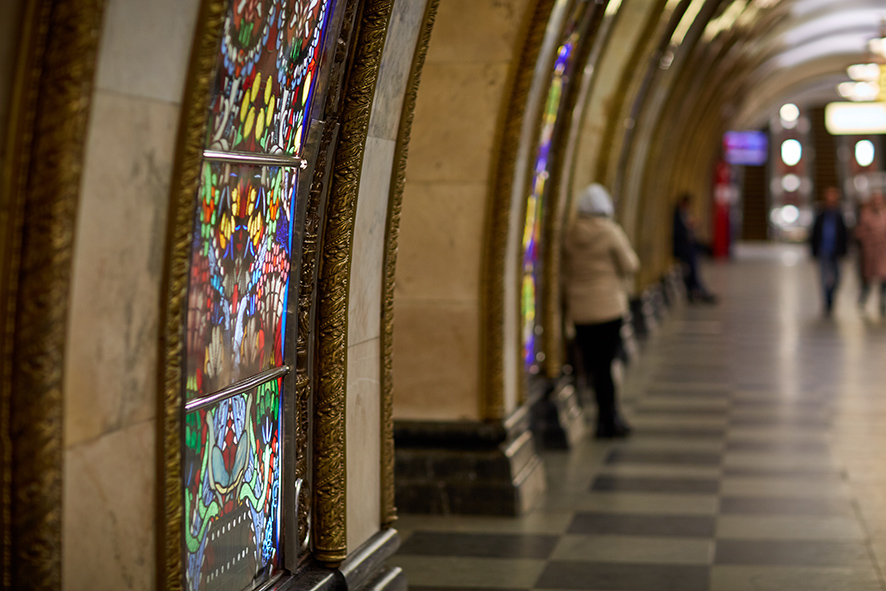Thriving or just surviving? The future of the Finnish national church
Thriving or just surviving? The future of the Finnish national church
Scandinavian countries are among the most secular countries in the world, but the Lutheran Church is the state church in many of these countries. Even in Finland, where the concept of state church was abolished in 1870, the Lutheran church has a special relationship with the country. However, the church has been losing members ever since the 1940s, with growing speed in recent years. Will the Finnish church find a new course to make Lutheranism relevant to modern times, or is it destined to lose its societal and cultural value in future Finland?
Strong national church in a secular state
Nordic countries have a unique religious landscape, being mono-religious with strong Lutheran state churches. However, the status of the church has been growing weaker over the past years. Nevertheless, Iceland and Denmark still have the Lutheran Church as state church, and the Danish monarch is the head of the national church. In Finland, Sweden, and Norway, the Lutheran church has a special status in legislation. In all these countries, the majority of citizens are still members of the Lutheran church.[1]
At the same time, Scandinavian countries are among the most secular countries in the world, Sweden taking the lead. According to a survey from 2015, Sweden is the least religious country in the Western world. Almost eight out of ten Swedes consider themselves to be ‘not religious’ or ‘convinced atheists’.[2] In comparison, 23% of the population in Finland say they do not believe in any God.[3]
Believing – but not as the Church teaches
Nevertheless, membership numbers of the Lutheran church have been slowly declining in Finland. From 4.4 million members in 1999, the number has dropped to 3.9 million in 2019, which is 68.6% of the Finnish population.[4] The Lutheran church is not the only religious organisation that is losing members. All religions except Islam and Pentecostal churches seem to be slowly losing popularity.[5]
All of this cannot be credited to atheism, even though three out of five of those who resigned from the Lutheran church said the reason was that they do not believe in God, or the church has no meaning in their lives. Interest in spirituality has not diminished, as secularisation theory once tried to suggest. Rather, New Age beliefs are taking ground. In 2016, 27% of Finns said they believe in a god or some higher power, but not as any particular religion teaches.[6] Christianity is also taking new forms in new non-denominational churches, of which there are around 200 in Finland.[7]
Declining numbers
Membership predictions are not a feel-good read for the clergy. If the current trend continues, the church will diminish to 2.8 million members by 2040 (51.4% of Finns).[8] Many see this as an inevitable future for the Finnish Lutheran church. This would mean financial problems, as the income from church tax diminishes with accelerating speed.
However, the decline in membership does not concern the church equally in all parts of Finland. In the Helsinki region less than 50% of babies are being baptised, whereas in Northern Finland four out of five babies receive baptism.[9] Younger generations also seem to be significantly less religious than older generations. The least religious group is 25- to 35-year-old women, from which less than 25% believe in God. As religion is traditionally transmitted to younger generations, this could mean that Finland will soon have new generations that have had almost zero contact with organised religion.[10]
Nevertheless, there are some positive developments for the church as well. Confirmation school camp is a highly successful Finnish phenomenon, as 77.4% of Finnish 15-year-olds attend confirmation school camp to learn the basics of Christianity. There has even been a slight increase in participation.[11] Many continue as young volunteer leaders, and would like to participate in church activities when they reach adulthood. However, they often do not find a befitting way to be a part of a local church.[12]
Does the church have a future in Finland?
Is there a way, then, for the church to be relevant to modern people? The church is traditionally very slow to change, and there has not been a consensus on the direction such change should take. Also, the decline in membership has not yet affected the church so much to force a change. Church tax still covers the salary costs of the large numbers of church staff, who organise the activities for the small number of active church-goers. In fact, the number of active Christians has not changed from around 9-10% of Finns. It may be the case that they will remain in the church, where those who do not find the Lutheran Church to be meaningful will leave.
There are some who try to revitalise the church. The community movement is planting new communities inside the Lutheran Church, mostly combining modern worship with conservative theology.[13] Some of these communities attract young adults[14], but they are still a quite marginal phenomenon. The bishops of the church have, however, encouraged parishes to develop new forms of more communal worship.[15]
Changing environmental and societal situations in Finland and worldwide can also affect the Lutheran church in unforeseen ways. Immigration is changing religious statistics, as immigrants mostly come from countries where religion plays a bigger role than in Finland. Approximately 61% of immigrants in Finland are Christian and 11% are Muslims, although definite numbers are difficult to come by, as most immigrants do not register as members of an official religious group.[16] Moreover, as Covid-19 has shown, rapid changes in society can happen, affecting the need for spirituality as well.
Thriving, surviving, or dying?
The future of the church is not written in stone. If the Lutheran church continues its current path, it might lose its societal and cultural value in Finland. However, the need for spirituality is not disappearing. It is never too late to try to find ways to be valid to modern young adults, as some communities in the church have already shown.
A very large number of Finns are still members of the church and consider themselves to be Christians. The church has good financial resources compared to many other organisations. If those resources are put to use to change the current path, the future of the Lutheran church in Finland could still look completely different.
Pietari Hannikainen
To all news items on this website ->
Want to know more about related topics? Create an account on the EARS Dashboard for free weekly updates.
[1] Tanskassa ja Islannissa vielä luterilainen valtionkirkko
[2] Sweden ‘least religious’ nation in Western world
[3] Suomalaisista 71 prosenttia kuuluu kirkkoon – usko enkeleihin ja Saatanaan lisääntyy
[4] JÄSENTILASTOT / MEDLEMSSTATISTIK >> 2019 >> JÄSENTILASTO 1999-2019
[5] Kommentti: Uskonnollisten yhteisöjen jäsenmäärät hiipuvat kautta linjan – mutta poikkeuksiakin on
[6] Alma-tutkimus: Jumalaan uskovia ei ollut missään päin Suomea yli 50 prosenttia
[7] Kommentti: Uskonnollisten yhteisöjen jäsenmäärät hiipuvat kautta linjan – mutta poikkeuksiakin on
[8] Jäsenennuste 2020-2040
[9] Pohjoisessa kastetaan noin neljä vauvaa viidestä, pääkaupunkiseudulla alle puolet – usein kastepäätös perustuu perinteeseen
[10] Analyysi: Naisten uskonnollisuuden vähentyminen vaikuttaa merkittävästi kirkon tulevaisuuteen
[11] Rippikoulun suosio kasvoi viime vuonna – 77,4 prosenttia koko ikäluokasta osallistui
[12] Väitös: Isostoiminta lisää nuorten kiinnostusta yhteiskunnan vapaaehtoistoimintaan
[13] Changing values and religiosity: the case of the emerging Community movement in the Evangelical-Lutheran Church of Finland
[14] Punavuoressa vietetään urbaanin heimon messua
[15] Piispainkokous kannustaa seurakuntia kehittämään yhteisöllistä jumalanpalveluselämää
[16] Maahanmuuttajien uskonnosta puhutaan enemmän kuin tiedetään






